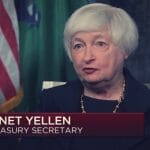by Rob Bennett
Buy-and-Holders are struggling today. They don’t want to give up on an investing strategy to which they have declared lifelong fidelity. But events are not playing out as expected. The feel a need to offer explanations that put their minds at least party at ease.
One story that is being told is that the problem with stocks today is that there is too much fraud in the market. It’s not the fault of Buy-and-Hold. Buy-and-Hold would work if not for all the dishonesty causing things that usually work to stop working for a time.
Okay. That thought hits close to the reality. But it misses the target in important ways.
We do live in a time of widespread market fraud. What’s missing in the analysis becoming popular among some Buy-and-Holders is that it is their devotion to Buy-and-Hold that has caused the fraud of which they are complaining!
There’s always a risk of fraud in the markets. Markets involve money. Money is a magnet for fraud. So smart investors know always to be on the lookout for fraud and to be wary of how it can eat into their investment returns.
Those picking individual stocks protect themselves by researching the management of the companies in which they invest. Their protection from losing money to financial fraud is investing only in companies led by people of long-demonstrated integrity.
Indexers have both a particular strength in this regard and a particular vulnerability. Indexers are not hurt by a few fraudulent acts. There have always been some fraudulent acts taking place in the markets and their effect is priced in to the returns that indexers expect to receive on their investments. So long as the amount of fraud does not rise to levels significantly greater than ordinary, indexers are in good shape.
Their particular vulnerability is that indexers possess no means to protect themselves from the effects of investing in stocks at times of widespread fraud. Indexers cannot hide out in companies with high-integrity managers. So long as the market as a whole remains clean, they are safe. When the market becomes corrupted, they take a hit.
But wait. There is an indicator that indexers could use to avoid suffering the effects of market fraud. It’s our old friend P/E10. People think of it as a valuations metric. It is more than that. It is a market fraud metric too.,
How so?
Overvaluation is fraud. Overvaluation is mispricing and mispricing is fraud. Avoid stocks when they are mispriced and you avoid the effects of market fraud.
There is always some fraud in the market. But so long as prices remain reasonable. it is unlikely that there would be sufficient fraud to cause serious problems for indexers. But times in which valuations soar are times when public scrutiny of what is going on in the market is spare (how else could valuations get out of hand?). A moderate P/E10 level is a signal that it is safe to invest in stocks. A high P/E10 level is a warning sign that fraud is on the rise and due to deliver a profit-destroying hit in not too long a time.
The full truth is that market fraud has been a problem for some time now. Buy-and-Holders are complaining about it because they are now seeing losses when they look at their portfolio statements. But it was fraudulent acts and fraudulent thinking and the toleration of fraudulent acts and fraudulent thinking that caused the bull market. Buy-and-Holders are suffering losses today because they failed to respond effectively to the warning bells that have been ringing loudly for 15 years now.
Markets of integrity are markets in which stocks are priced properly. Investors who fail to take valuations into consideration when setting their stock allocations are as a matter of deliberate policy encouraging fraud. They are in no position to complain of the financial effects of doing so when the time comes to pay the piper.
Buy-and-Hold is a fraudulent investing strategy. That’s saying it harshly but I think it is saying it fairly.
The stock market is a community of humans. Humans have a weakness for fraud. The only protection against fraud that human communities can possess is eternal vigilance on the part of all members of the communities. Buy-and-Holders elect out of their responsibility to exercise such vigilance as their first investing act. It is only by lowering our stock allocations when fraud gets out of hand (as evidenced by high P/E10 levels) that we can protect ourselves and our friends and neighbors and co-workers from the effects of widespread financial fraud,
The investors who are complaining today that Buy-and-Hold doesn’t work at times of widespread financial fraud are saying something important but failing to offer a prescription to overcome the illness from which we all suffer. No, Buy-and-Hold doesn’t work at times of fraud. But it is not as if there could ever be a time when large numbers of us would become Buy-and-Holders and not thereby bring about a fraud-filled market.
Investors have responsibilities to the markets from which they hope to extract profits. One of those responsibilities is to keep the markets on the level. Markets that are on the level do not price stocks at three times fair value. The Buy-and-Holders who are today suffering from the effects of market fraud need to take a look at the face of the man or woman in the mirror. We showed indifference to the steady growth of the market fraud that is today killing us until it became strong enough to overwhelm us all.
Bernie Madoff is us.
For now. There are signs that we are working up the courage to shake off the lethargy.
Rob Bennett believes that life itself is a free lunch and that it would be a terrible mistake not to take advantage of all the good stuff it has to offer just because the “experts” say there is no such thing. His bio is here.











